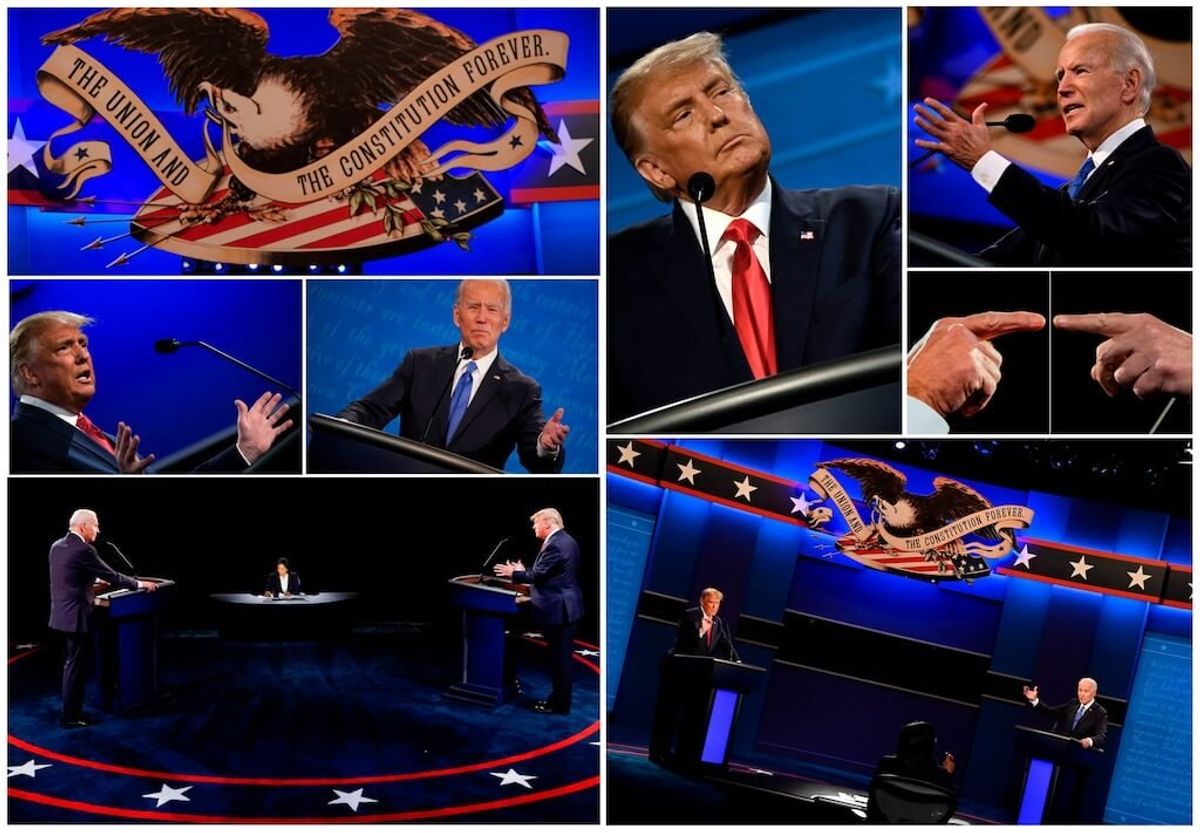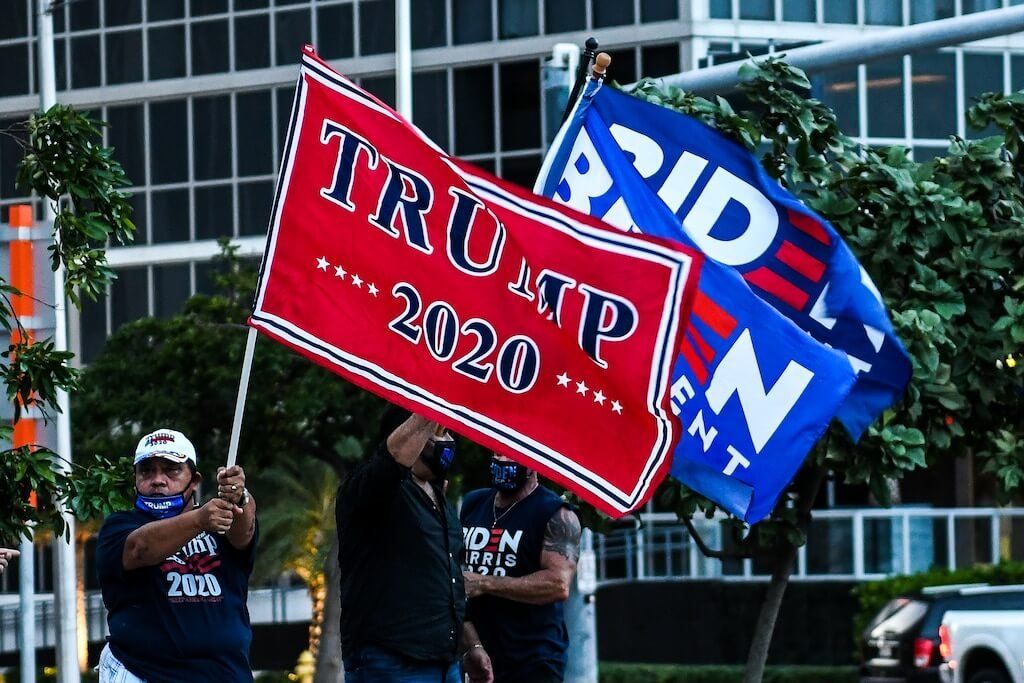
How Biden and Trump Differ on Foreign Policy
As candidates from competing political parties, President Donald Trump and former Vice President Joe Biden have different views of how the United States should relate to the rest of the world. At a basic level, the divide can be seen in Trump’s “America First” doctrine and Biden’s embrace of more international cooperation.
Here are some of the major areas that illustrate the candidates’ different approaches to U.S. foreign policy.
NATO
Trump quickly targeted the alliance, starting during his 2016 campaign, demanding other members boost their defense spending. Some countries have met the spending target NATO set in 2014, before Trump took office, but many have not and earlier this year Trump withdrew 12,000 troops from Germany while accusing it of taking advantage of the United States.
Biden called NATO “the single most consequential alliance in the history of the United States,” during a June 2019 debate and warned it “will fall apart” if Trump wins reelection. The former vice president wants to prioritize reestablishing such international partnerships.
Russia
Biden has pledged to confront Russian President Vladimir Putin about Russia’s interference in U.S. elections and other activities.
“I don't understand why this president is unwilling to take on Putin when he's actually paying bounties to kill American soldiers in Afghanistan, when he's engaged in activities that are trying to destabilize all of NATO,” Biden said.
Trump has dismissed the assessment by U.S. intelligence agencies that Russia interfered in the 2016 election with a preference for him to win, calling the issue that led to his impeachment a “hoax” and a “witch hunt.” He has pointed to U.S. sanctions on Russia as evidence of his administration’s strength.
“There has been nobody tougher on Russia than Donald Trump,” he said.
China
Trump’s China policy has evolved throughout his presidency. After hosting Chinese President Xi Jinping for a summit in the first months of his administration, relations later devolved into a trade war with escalating tariffs before finally reaching the first phase of a trade agreement in January. As the pandemic grew in 2020, Trump blamed China for the coronavirus pandemic, while pushing to ban popular China-based apps TikTok and WeChat.
“President Trump has stood up to China and will continue to stand strong,” Vice President Mike Pence said during an October debate.
Biden advocates taking a harder stand on human rights issues in China and the situation in Hong Kong, while keeping pressure on China for its trade practices.
Biden’s running mate, Senator Kamala Harris, said during her debate with Pence that the Trump administration “lost that trade war.”
“Farmers have experienced bankruptcy, because of it. We are in a manufacturing recession, because of it,” Harris said.
Iran
Biden was vice president when the United States joined five other world powers to sign the 2015 agreement that limited Iran’s nuclear program in exchange for sanctions relief. Trump pulled out of the agreement, calling it “the worst deal ever negotiated,” and imposed fresh sanctions that have both hurt Iran’s economy and pushed it to increase its nuclear activity.
Biden says he would seek to rejoin the deal, with Iran returning to compliance.

Israel
Both candidates support a two-state solution in the long-sought peace effort between Israel and the Palestinians.
Trump has been a vocal supporter of Israeli Prime Minister Benjamin Netanyahu and moved the U.S. Embassy in Israel from Tel Aviv to Jerusalem.
Biden criticized that move, but does not plan to reverse it. He proposes opening a U.S. consulate in East Jerusalem to engage with the Palestinians.
The Democratic candidate did credit the Trump administration’s brokering in recent weeks of agreements for Israel to normalize relations with Bahrain and the United Arab Emirates. But Biden said Trump still had “no coherent plan for foreign policy” beyond his prioritization of U.S. interests.
Afghanistan
Trump’s administration reached an agreement with the Taliban that calls for U.S troops to leave by mid-2021, and in October he tweeted that he wanted the withdrawal to be completed by the end of 2020.
Biden has expressed a more cautious approach that is based on the conditions on the ground.
North Korea
Trump held two rounds of talks with North Korean leader Kim Jong Un and met a third time at the inter-Korean border as part of a push to denuclearize the Korean peninsula. The talks did not yield any commitments, but Pyongyang had not tested a nuclear weapon or ICBM since 2017. Trump says he and Kim “developed a very good relationship” and his administration has expressed hopes for another summit.
Biden’s position is that he would not meet with Kim without preconditions. A Biden administration strategy would be to utilize the pressure of sanctions to push Kim to negotiate.
Africa
Biden proposes reversing the travel bans that Trump instituted when he first took office, including one that has severely affected several majority Muslim nations including Nigerian, Sudan and Somalia. Trump defended the bans as necessary for national security.
Both candidates have as part of their strategy for relations with African nations a push for economic development, as well as working with the continent’s young leaders and members of the diaspora.
Central America
Trump’s administration concluded agreements in 2019 with Guatemala, El Salvador and Honduras requiring migrants to first seek asylum in those countries. If they arrive at the U.S.-Mexico border without having done so, they will be sent back. Adviser Stephen Miller said similar agreements with other nations would be a goal in a second Trump term.
Biden has criticized what he called Trump’s “draconian immigration policies that seek to undo our asylum and refugee laws” and says he would restore some aid to the region in an effort to pressure the governments to reduce the number of migrants traveling north.
Under the Trump administration, the number of refugees admitted to the United States from all over the world has plummeted from about 85,000 in the last year of President Barack Obama’s term to a cap of 15,000 this year. The State Department said the latest limit is necessary for the “safety and well-being of Americans, especially in light of the ongoing COVID-19 pandemic.”
Biden has pledged to sharply reverse the trend by boosting the limit to 125,000.
Multilateral efforts
Trump’s prioritization of U.S interests has led to a move away from several international efforts, including his decisions to leave the Paris Agreement on climate, cut funding to the World Health Organization over its handling of the coronavirus, and to pull out of the Trans-Pacific Partnership trade deal.
Biden supported both the Paris accord and the TPP during his time as vice president and would seek to rejoin them, while also restoring the WHO funding.
 Former DHS Official Says He Wrote NY Times ‘Anonymous’ Trump CritiqueNext PostHere’s WHY Your VOTE Really Does Matter
Former DHS Official Says He Wrote NY Times ‘Anonymous’ Trump CritiqueNext PostHere’s WHY Your VOTE Really Does Matter







